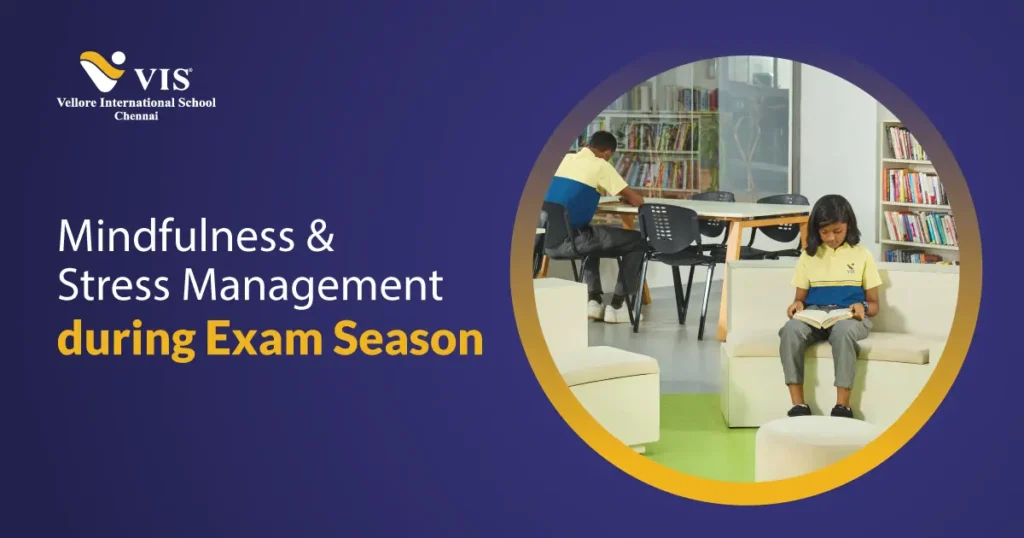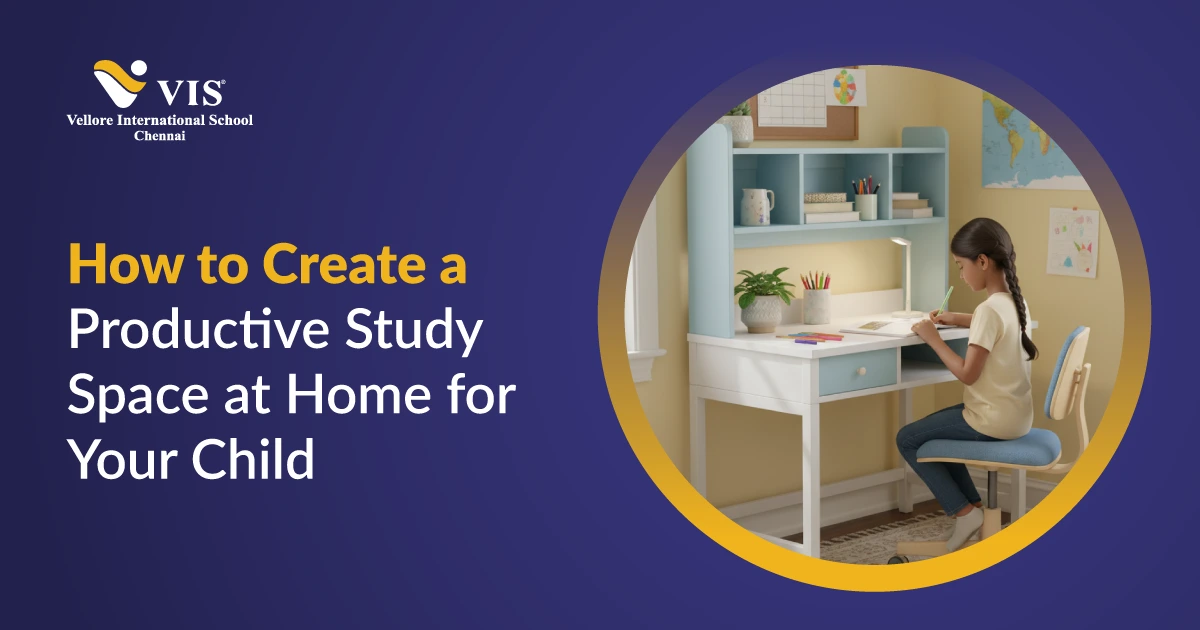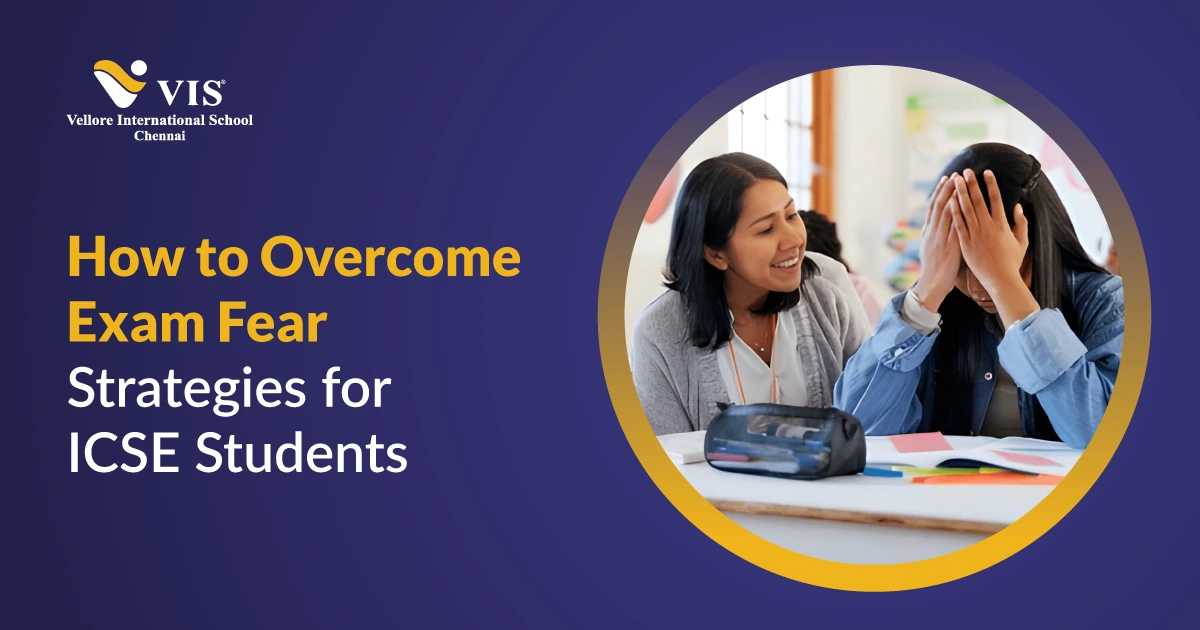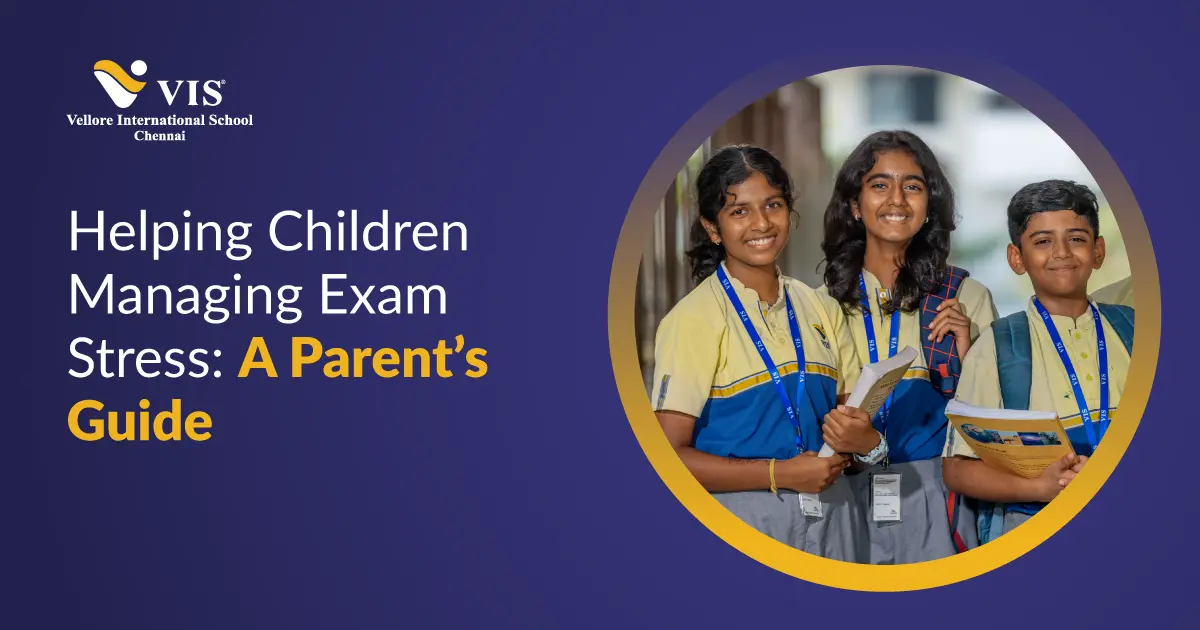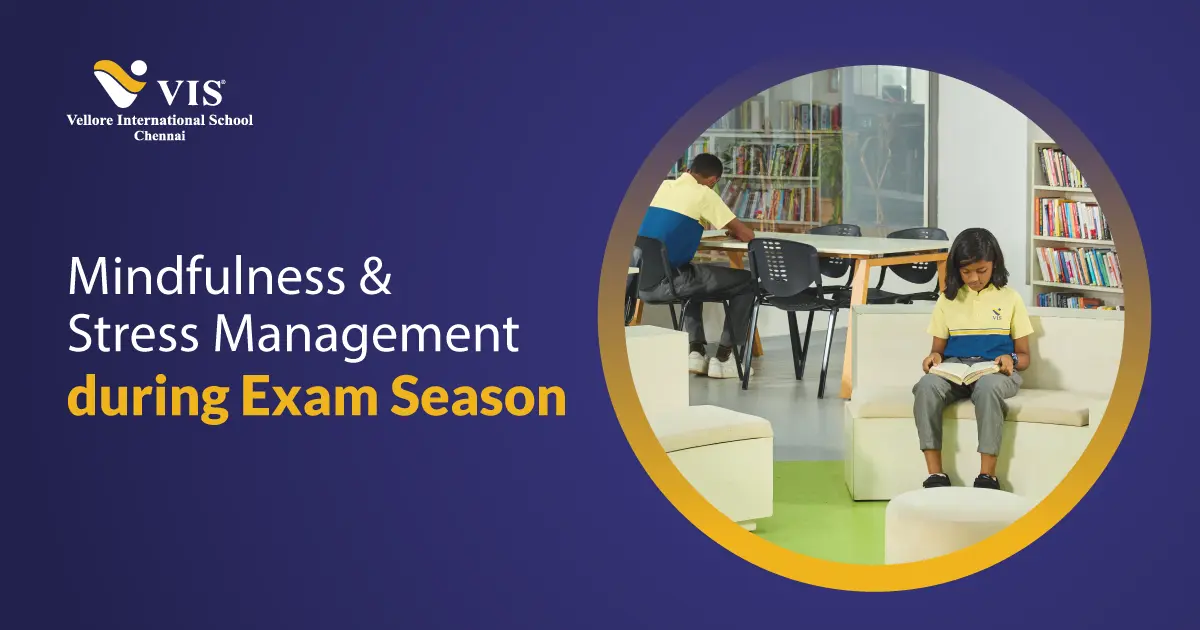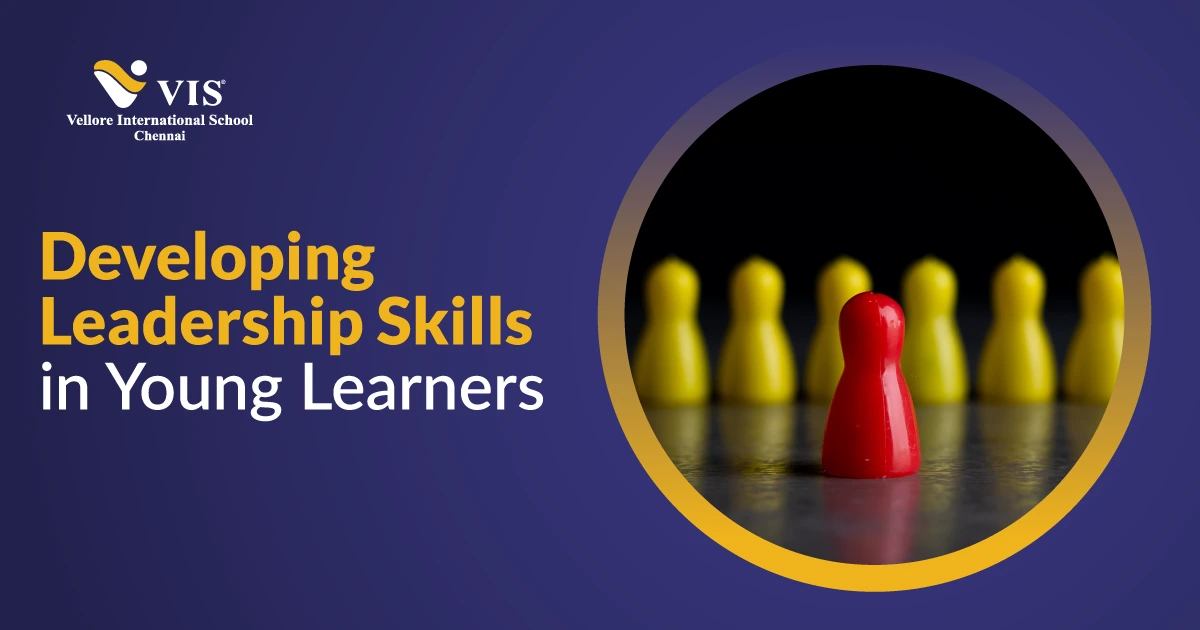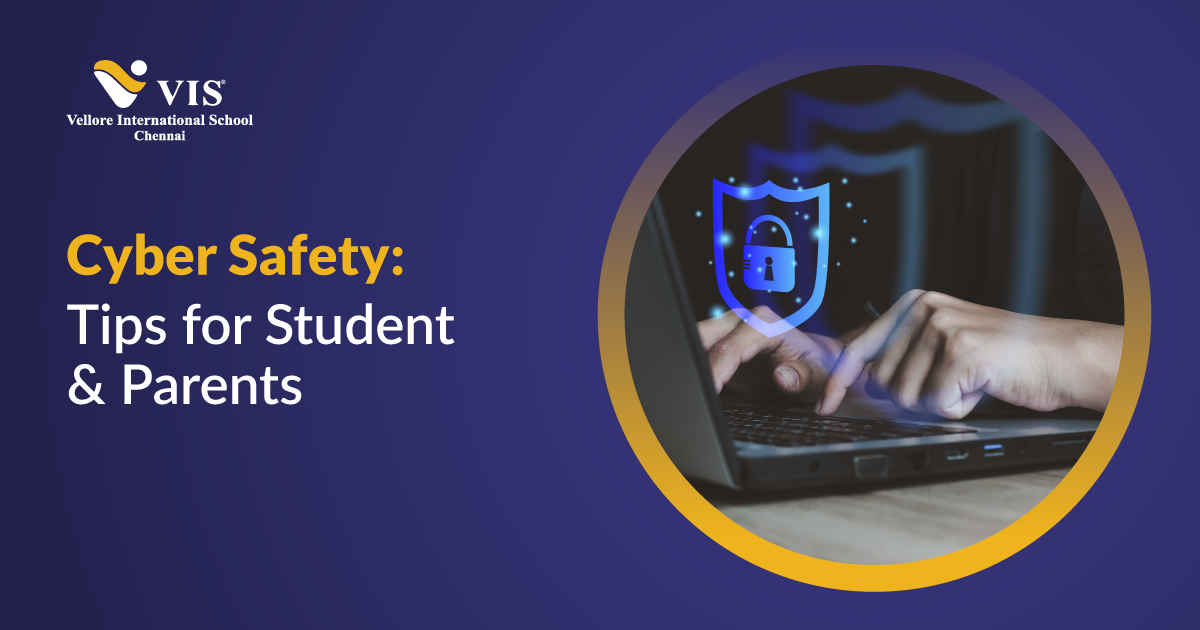Every year, as exam season approaches, countless students experience the familiar cycle of anxiety, long study hours, and pressure to perform well. For many, the stress of exams seeps into sleep patterns, moods, eating habits, and even physical health. Parents, too, feel the tension as they try to support their children through this crucial period.
But amidst the chaos, there lies a powerful tool that can transform how students experience exams: mindfulness and stress management practices. This blog explores the mindfulness and management of stress during exam season.
Understanding Mindfulness: What It Really Means
Mindfulness is not about sitting cross-legged for hours in meditation. At its core, mindfulness means being present in the moment. It involves paying attention to your thoughts, emotions, and surroundings without judgment.
For students, this practice can help reduce exam anxiety by anchoring them in the “now”, rather than worrying about what might happen if they fail or don’t meet expectations. When combined with effective stress management strategies, mindfulness allows students to:
- Calm their racing thoughts
- Build resilience to pressure
- Develop a sharper focus for study sessions
- Improve memory retention
In short, mindfulness and stress practices make exam season more manageable and less overwhelming.
The Science Behind Mindfulness & Stress Reduction
Science shows that mindfulness rewires the brain. Practising mindfulness:
- Reduces cortisol, the body’s primary stress hormone
- Activates the prefrontal cortex, responsible for focus and decision making
- Improves emotional regulation, making students less reactive to stressors
In essence, mindfulness helps students respond to exams with calm determination instead of fear.
Why Exams Trigger Stress in Students
To understand why mindfulness is so essential, it’s important to first explore why exams often bring intense pressure and worry.
1) Fear of Failure
Many students associate exam results with their self-worth. The thought of disappointing parents or teachers creates a heavy burden, leading to sleepless nights and constant worry.
2) Peer Comparison
Classrooms often become silent competition zones. When students compare themselves with peers, they feel anxious about not measuring up, which only increases stress.
3) Over-scheduling
With coaching classes, revision timetables, and back to back study hours, students rarely get enough rest. This lack of downtime leaves them mentally exhausted and emotionally drained.
4) Unrealistic Expectations
Some students set very high goals or feel pressure from family expectations. When targets seem unattainable, they spiral into self-doubt and frustration.
5) Lack of Preparation
Procrastination or poor planning leads to incomplete revision. As exam day approaches, unprepared students feel overwhelmed, fuelling panic and anxiety.
Recognising these triggers is the first step to tackling them. With the right mindfulness and stress management practices, students can regain balance, focus on effort instead of fear, and approach exams with confidence.
Common Myths About Mindfulness
- “Mindfulness is only meditation.”
False. It includes breathing, journaling, visualisation and more. - “It takes too much time.”
Even 5 minutes a day can reduce stress significantly. - “Only adults need mindfulness.”
Children and teens benefit the most, as it shapes lifelong coping skills.
Practical Mindfulness Techniques for Students
Let’s explore simple yet effective ways students can integrate mindfulness into their daily lives during exams.
1. Mindful Breathing
Breathing is one of the most powerful tools to manage stress, and it’s always available. By slowing down and taking deep breaths, students help regulate their nervous system. Before starting a study session, pausing for two minutes of mindful breathing can reduce restlessness, lower anxiety, and prepare the brain to absorb information more effectively.
It’s a small habit with big results, especially when practised regularly.
2. Body Scan Relaxation
Exams often bring physical tension, stiff shoulders, clenched jaws, or headaches. A body scan is a mindful technique where students mentally “travel” from head to toe, noticing areas of tightness and releasing them.
This practice increases self-awareness and helps students approach studying with a relaxed body and focused mind.
3. Mindful Study Breaks
Scrolling on social media may feel like a break, but it often overstimulates the brain. Instead, students can use short, mindful breaks to recharge effectively. Stepping outside, noticing the sky, or simply stretching can bring calm and restore energy.
These mindful pauses prevent burnout and make the next study session more productive.
4. Gratitude Journaling
When exam stress feels overwhelming, gratitude journaling is a grounding practice. By writing down three things they are grateful for each evening, students shift focus from what’s missing to what’s positive. This builds resilience and creates a healthy mindset that reduces anxiety and boosts confidence.
5. Visualisation Exercises
Mental rehearsal is a powerful technique. Students can visualise themselves walking into the exam hall calmly, writing answers with focus, and leaving with satisfaction. Visualisation strengthens confidence, reduces performance anxiety, and primes the brain for success.
Together, these practices ensure that mindfulness and stress management become essential parts of exam preparation, motivating students to study smarter, not harder.
Stress Management Strategies Beyond Mindfulness
While mindfulness is powerful, it becomes even more effective when combined with a range of broader stress management strategies.
1) Balanced Routine
A well-balanced routine is essential during exam season. Students must maintain proper sleep, eat nutritious meals, and stay hydrated. Sleep-deprived minds struggle to absorb, process, and recall information, which directly impacts performance. A consistent routine restores mental clarity and builds stamina for long study sessions.
2) Time Management
Good time management reduces exam stress dramatically. By creating realistic study schedules and dividing large portions into smaller, manageable tasks, students avoid the chaos of last minute cramming.
Structured timetables provide a sense of control and accomplishment, boosting motivation and reducing anxiety.
3) Physical Exercise
Physical activity is a natural stress reliever. A simple brisk walk, light stretching, or yoga session improves blood circulation, lowers cortisol (stress hormone) levels, and sharpens focus. Exercise also prevents burnout, keeping the body and mind energised throughout exam preparation.
4) Talking About Feelings
Students should not bottle up their emotions. Sharing concerns with parents, teachers, or trusted friends provides relief and reassurance. Emotional support systems remind students they are not alone, reducing the feeling of isolation that exams sometimes bring.
By blending these practices with mindfulness, students create a complete stress management toolkit, enabling them to handle exam challenges with calmness, clarity, and confidence.
The Role of Parents in Supporting Mindfulness & Stress Management
Parents are crucial allies during exam season. They can:
- Encourage mindful habits without pressuring the child
- Provide a supportive, distraction free environment at home
- Model calm behaviour yourself, showing children that challenges can be met with composure
- Celebrate efforts, not just results, to ease performance pressure
When parents adopt mindfulness and stress awareness, children learn by example.
How Schools Can Encourage Mindfulness During Exams
Educational institutions have a key role in guiding students toward healthier exam practices. Some schools now integrate mindfulness programs into daily schedules. Short meditation breaks, stress workshops, and time management training prepare students holistically.
Vellore International School’s Approach to Mindfulness and Stress Management
At Vellore International School (VIS), the philosophy of education extends beyond academics. Our school actively encourages students to balance their studies with wellness practices. By creating an atmosphere where academic success and mental health are valued equally, we assist students in seeing tests as opportunities for personal development.
Teachers and mentors incorporate techniques such as reflective journaling, group discussions, and mindful learning exercises to equip students with the skills to handle exam season gracefully. This integrated approach ensures that VIS students excel in academics and in resilience, confidence, and emotional well-being.
Final Thoughts: A Balanced Path to Exam Success
Exam stress is real, but it doesn’t have to control students’ lives. With mindfulness practices, effective stress management, and supportive environments at home and school, exam season can transform into a time of growth and confidence.
The journey is about avoiding challenges and learning to face them with calm, focus, and resilience. And that is what mindfulness teaches best.
FAQs on Mindfulness & Stress Management during Exam Season
1. How can mindfulness help students reduce exam anxiety?
Mindfulness helps students stay focused on the present moment instead of worrying about results. By practising breathing exercises, guided meditation, or gratitude journaling, students can calm their nerves, improve concentration, and reduce exam anxiety naturally.
2. What are the best mindfulness and stress management techniques for exam season?
Some of the most effective techniques include mindful breathing, visualisation, short mindful study breaks, body scan relaxation, and gratitude journaling. Combining these with a healthy routine, balanced sleep, and physical exercise ensures students stay calm and perform better.
3. Can mindfulness improve exam performance along with stress relief?
Yes. Mindfulness manages stress and enhances academic performance. It improves focus, memory retention, and problem-solving skills, allowing students to answer questions with clarity and confidence during exams.
4. How can parents support children with mindfulness and stress during exams?
Parents can create a calm study environment, avoid unnecessary comparisons, and encourage mindful habits like deep breathing and regular breaks. Providing emotional support, nutritious meals, and positive affirmations also helps reduce exam stress.
5. Why should schools include mindfulness programs during exam preparation?
Schools that integrate mindfulness help students develop resilience, focus, and emotional well-being. At institutions like Vellore International School, mindfulness practices are encouraged to balance academic excellence with mental health, ensuring students are exam and life ready.

